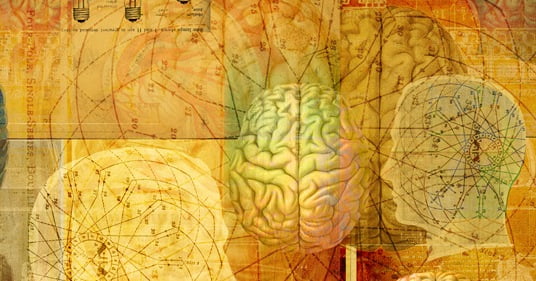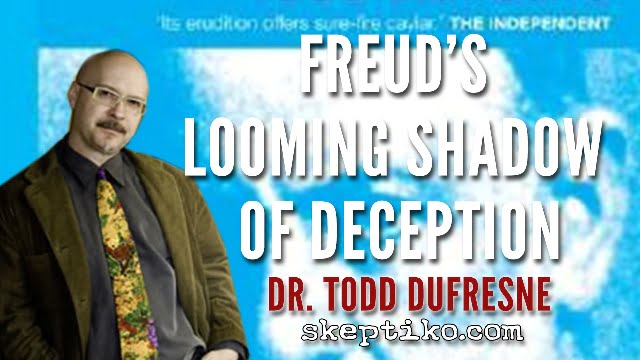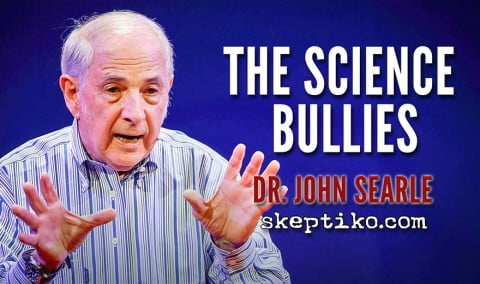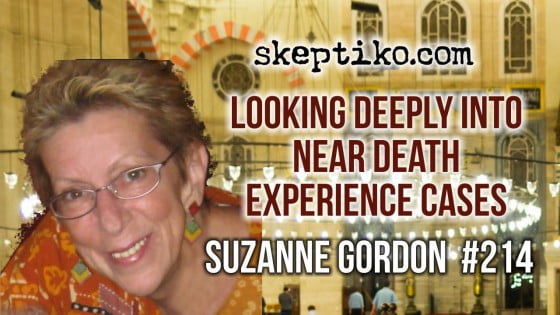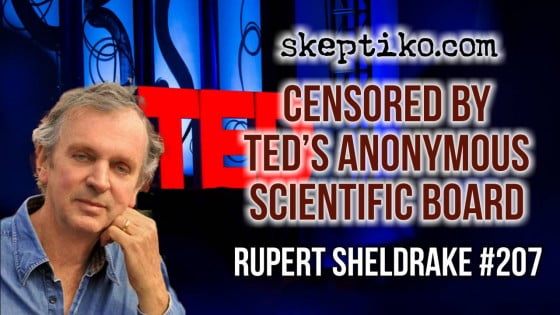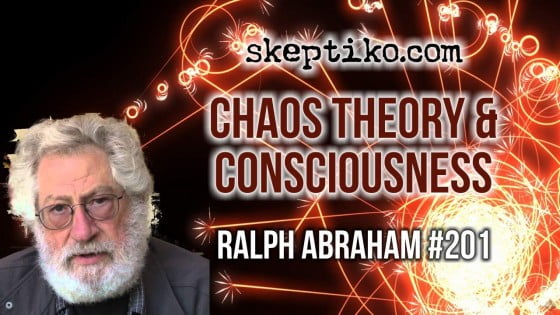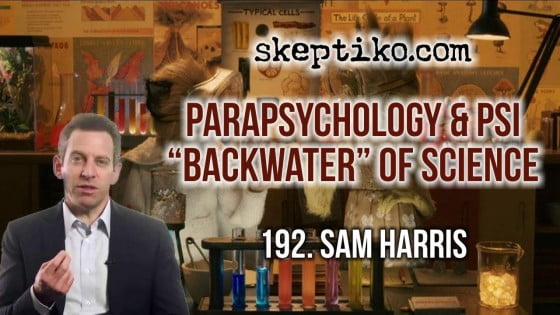ASU science Professor Lawrence Krauss stepped into his own black hole when he challenged the Dalai Lama's over his belief in reincarnation. A...
Tag: science
Science has its enemies, but they may not be who you think |262|
Will Storr went looking for science's enemies and found Creationists aren't the only threat. Investigative reporting sheds light. Alex...
261. Why Science Is Wrong…About Almost Everything
https://www.youtube.com/watch?v=pqpMBqChuX8 An Exploration of Skeptiko 3.0 and Why Science Is Wrong...About Almost Everything. Join Skeptiko...
Autistic… and psychic. Research reveals psychic abilities among autistic savant children |257|
Interview ith Dr. Diane Powell about research into telepathy in autistic savant children. Join Skeptiko host Alex Tsakiris for an interview with...
What this medical researcher’s LSD trip told him about materialistic science — wrong, wrong, wrong |256|
252. Bernadette Doran on Energy Healing
Interview with energy healing researcher and practitioner examines the Bengston Method of energy healing. Join Skeptiko host Alex Tsakiris for an...
250. Dr. Jeffrey Schwartz, Science’s Inability to Explain Personhood
Interview with research psychiatrist and and author, Dr. Jeffrey Schwartz examines the mismatch between science-as-we-know-it and...
249. Tim Freke On Soul Crushing Science
Interview with consciousness philosopher and author, Tim Freke examines the absurdity of science-as-we-know-it. Join Skeptiko host Alex Tsakiris...
248. Bernardo Kastrup Says Materialism is Baloney
Interview with philosopher and author, Bernardo Kastrup examines the limits of scientific materialism. Join Skeptiko host Alex Tsakiris for...
247. Roy Davies Exposes Charles Darwin’s Plagiarism
Click here for YouTube version Click here for forum discussion Interview with journalist and author, Roy Davies reveals how Charles Darwin lied...
245. Peter Russell, Science Ignores Consciousness
Interview with author and consciousness explored, Peter Russell examines how science ignores questions of consciousness. Listen Now: ...
Dr. Jim Tucker compiles largest database of past life memories |239|
Interview with University of Virginia professor Dr. Jim Tucker about research of children who remember past lives. photo by rogintakesphotos Join...
238. Why Skeptics Are Wrong… About Psychics & Mediums
236. Rome Viharo, Wikipedia, We Have a Problem
click here for YouTube version click here for forum discussion Interview with social media expert and Wikipedia critic, Rome Viharo exposes...
235. Dr. Todd Dufresne on Freud’s Looming Shadow of Deception
Click here for YouTube version Click here for forum discussion Interview with the Dr. Todd Dufresne examines Sigmund Freud's deception and...
230. Dr. David Jacobs Claims Academia Has Abrogated Responsibility to Investigate Alien Contact
Click here for YouTube version Click here for forum discussion Click here to post comments on AlexTsakiris.com Interview with alien...
224. Dr. John Searle and the Science Bullies
Click here for YouTube version Click here for forum discussion Click here to post comments on AlexTsakiris.com Interview with esteemed Berkeley philosopher and consciousness researcher Dr. John Searle examines the state of academic consciousness research. Alex Tsakiris: What we’ve been exploring is some of the evidence suggesting that consciousness may not be purely biological. We really started with parapsychology and folks like Rupert Sheldrake from Cambridge and Dean Radin who used to be at Bell Labs and is at IONS. But put all that aside because the real kicker is near-death experience science. Here are these doctors, in hospital, carefully controlled experiments over and over again, and the brain you’re talking about, Dr. Searle, is gone. It’s non-functioning; it isn’t there; and yet some kind of conscious experience that’s able to see and recall what’s going on continues. That evidence is pretty overwhelming at this point. What do you do with that? How does that fit into your model? Dr. John Searle: I don’t know. The stuff that I know about this tends to be rather anecdotal. Now maybe there is some really systematic, large-scale study of near-death experience that shows you can have consciousness without a brain but I don’t know of any such study. What I’ve heard is largely anecdotal. The mistake that people tend to make is they think, look, either these people are lying or there’s a miracle. Of course, both of those are probably wrong. People are perfectly sincere who report near-death experiences but it doesn’t follow that you can have consciousness completely separated from the brain; that this miracle is actually taking place. I’d have to know a whole lot more about it and see more systematic studies, as I said. The accounts that I’ve heard tend to be anecdotal. They tell a story about a guy who has had some unusual experiences. Alex Tsakiris: There is actually a lot of published work on this. The best compilation is probably The Handbook of Near-Death Experiences edited by Jan Holden at the University of North Texas and Bruce Greyson at the University of Virginia, who is very well-known in this area. Dr. John Searle: I don’t know enough about this stuff to have an intelligent opinion. Of course, it might turn out that 100 years from now we’ll have this conversation in heaven or in my case more likely the other place. The idea that you have to have a brain in order to be conscious, that’s a kind of silly idea people had back in the 21st Century. It might turn out that way; I don’t think it will. ---------- On today's episode I have an interview with Dr. John Searle. Now, before we get to the interview I want to tee up a question for you. As you know, I usually do this at the end of the show, but since the question relates to the quote you just heard, and since the question relates to something else I want to talk about I'm going throw it out there now -- How do you explain Dr. John Searle's willful ignorance of near-death experience science? Moreover, why is he so clueless about parapsychology? And most importantly, why does he think it’s ok to summarily dismiss all evidence pointing to any model of consciousness other than his hopelessly obsolete mind=brain clunker. Let’s consider near-death experience science since it's the most dramatic example of science that delivers an evidence-based kill-shot to the mind=brain carcass. How can a highly acclaimed, internationally renown expert on consciousness, who gives TED talks and is invited to scholarly symposiums on consciousness, how can that guy be less informed about the published peer-reviewed literature than your average Oprah Winfrey fan? It's not like he doesn't understand what's at stake. As you'll hear, he agrees the survival of consciousness question is central to all other scientific assumptions about consciousness. So why is Dr. Searle shamelessly, unapologeticly ignorant of this science? Well, that's the other thing I wanted to talk about before we get to this interview -- science bullies. Back in March of 2013, Robert McLuhan published an article on the organized effort of Skeptics/Atheists to rig Wikipedia (Guerrilla Skeptics). By organizing themselves into a tight-knit team and dedicating themselves to making literally thousands rule-bending Wikipedia changes, these self-described Guerrilla Skeptics have had remarkable success. For example, Parapsychology is a lost cause on Wikipedia. It's absolutely impossible to get anything close to a "neutral point of view" from Wikipedia on any parapsychology topic. If you don't know what I mean, and you have a strong stomach, go to Wikipedia see for yourself. If you're a listener to Skeptiko, and you have a really strong stomach, search "psychic detective." Now, if you are appropriately outraged, and have a strong masochistic streak, enter Wikipedia as an editor and try and straighten out one of those pages. I mean, you're supposed to be able to do that, right? Wikipedia is an open-source encyclopedia. Anyone with knowledge of the subject is supposed to be able to edit, right? But before you try and fix things over at Wikipedia read this blog post from Craig Weiler titled, The Wikipedia Battle for Rupert Sheldrake's Biography. And then take a look at Dr. Rupert Sheldrake's article on the same topic (Wikipedia Under Attack). As a listener of this show, none of this is new to you. You know the dogmatic craziness of these fundamentalist Skeptic/Atheist groups can rival any religious cult, but you might be surprised at the zeal with which these group are going after science. Rupert Sheldrake after all isn't a bible-thumper. He's not a creationist. He hasn't taken a stand against, "a woman's right to choose", or called for a ban on gay marriage. No, he's a Cambridge biologist who wrote a book about Dogs that Know When Their Owner's are Coming Home. And followed it up with a book about how science might want to be a little less dogmatic about defending the materialistic status quo. There are many highly esteemed scientists who think Sheldrake's ideas are brilliant and admire his willingness stand up to the attacks he's had to endure, but none of that matters to the science bullies. The biggest problem is not Guerrilla Skeptics on Wikipedia, or iTunes, or Reddit or any of the places these folks go to try and heal their meaningless-by-definition lives (Atheist dogma, see: ep. 219, ep. 221). The problem is the impact they have on Dr. John Searle. Because you see, Berkley Philosophy professor, Dr. John Searle is not a professional Skeptic. He's not a fire-breathing, you-are-a-biological-robot Atheist. In fact, within the mainstream science community he's seen as a progressive because he's willing to reject the silliness of the "conciseness is an illusion" nonsense that still grips many die-hard materialists. But when it comes to the tough stuff, the stuff that would truly set science free from the materialistic/reductionistic/atheistic dogma that cripples it, Searle is willfully ignorant. Is it an ignorance borne out of a chummy academic life and a long list of accomplishments? Perhaps. But I think this ignorance is also a byproduct of a materialistic science culture that has been traumatized into complacency by Skeptical Bullies who push, shove, and spit insults any free-thinking academic who dares to challenge their status quo. It's not that Searle is playing to the Skeptics; he's unwittingly absorbed their eyes-wide-shut worldview into his own without forethought or deliberation... and that's the greatest threat to science. So, let's hear from Dr. John Searle. It's a short interview, mainly because I ran out of things to say to someone who thinks parapsychology died with J. B. Rhine in 1980 (continued below). Play It Listen Now: Download MP3 (34 min.) Read It: Today we welcome esteemed Berkeley philosophy professor, Dr. John Searle to Skeptiko. Dr. Searle has a worldwide reputation for his acclaimed work on the philosophy of mind and language. He’s the author of over a dozen books and hundreds of articles and papers exploring issues of consciousness and mind/body mysteries. Dr. Searle, welcome to Skeptiko. Thanks so much for joining me. Dr. John Searle: Thanks for having me.
...223. Dumbest Explanation Yet For Near Death Experience
Click here for YouTube version Click here for forum discussion Click here to post comments on AlexTsakiris.com Examination of recent research from the University of Michigan linking surge in brain activity of dying rats to near-death experience science. Join Skeptiko host Alex Tsakiris for a look at two interviews that shed light on recent reports suggesting a scientific explanation for near-death experiences has been discovered in the work of Dr. Jimo Borjigin, at the University of Michigan. The study found a surge in electrical activity in the brains of dying rats. Researcher and science writers offered this as a possible expatiation for human near-death experiences. As we’ve seen in the past, research supporting a convention explanation for near-death experience receives considerable attention form the mainstream science media. This study was no exception with stories popping up on the BBC, ABC, CBS, FOX, National Geographic and many other media outlets. (continued below) NPR's report on the research Play It Listen Now: Download MP3 (43 min.) Read It: Many Skeptiko listeners sent me this links to the various reports on this research, and I kept pointing them to a past interview I had done a couple of years ago relating to this topic, but since I never mentioned it on the show I thought I do so now. In June of 2011 I interviewed George Washington University Medical Center Professor, Dr. Lakhmir Chawla, who discovered a surge in the brain’s electrical activity seconds before death might in humans. Here’s a clip from Skeptiko episode 140: --------- Alex Tsakiris: So, Dr. Chawla, in 2009 you published a paper with the surprising discovery that some of your patients who were very close to death experienced a final surge in brain activity and the paper has gained quite a bit of traction, media attention, mainly because of this quote of yours: “We think that near-death experiences could be caused by a surge of electrical energy as the brain runs out of oxygen.” It‘s been a while since that paper was published. So first I want to ask you, do you still think that what you saw has anything to do with near-death experience? Dr. Lakhmir Chawla: Obviously all of the patients in our study passed away so there’s really no way for us to truly know if what these people were experiencing is, in fact had they survived, being the signature of a near-death experience. What we did notice which was very striking is that in all these patients--and in this study we reported on seven patients on which we had very good documentation. We’ve seen these electrical surges, EEG activity, at the end of life in over 100 patients and what we basically have, I hypothesize that when people pass away something occurs in their neural structure. We have a hypothesis for why this may be happening, that causes this large intensity of electrical energy. What we basically hypothesize further and speculate is that if somebody within the field, someone who’s having a heart attack, for example, and their heart stops and the oxygen to their brain went down and they have this sort of terminal surge of energy and then they were resuscitated and brought back, it’s very likely that they would recall that electrical surge. If they did recall that electrical surge, we hypothesize and speculate that that could be what people describe in their near-death experiences. The one thing that we’ve seen rather consistently when you read the literature of near-death experiences is that not everyone has the same imagery. Not everyone has the same experience. But the one thing that they all have in common is that the experience is very intense and very vivid. People can usually recall many, many years later on with great detail what they experienced. So it would take something that would be a very durable electrical event of energy for someone to have that. So we put those notions together and arrived at that speculation. Alex Tsakiris: Okay. I just wanted to confirm that and it’s interesting that you reference the near-death experience literature. I’ve had a chance to interview some of the world’s leading near-death experience researchers and gosh, I even went back and talked to some of them about this. I couldn’t find any of them that would even seriously entertain that kind of speculation. As a matter of fact, privately one of them told me, and this is pretty harsh, but he said, “It’s one of the dumbest explanations for near-death experience yet published.” So I guess I was really wondering exactly where you’re coming from, exactly what near-death experience research you’ve dug into that makes you feel like the speculation that you’re talking about would fit the broader research that’s been done into near-death experience. Dr. Lakhmir Chawla: No, I mean I’m not a researcher in near-death experience. That’s not my primary scientific interest. We are basically at the bedside taking care of very sick patients in the intense care unit. I don’t pretend to have any incredible insight into what these are or are not. All we are saying from our group’s scientific standpoint is that we see a very consistent signature for patients when they’re passing away. We are not the only investigators to report this; it’s now been investigated and reported by multiple investigators.
...217. Dr. Gary Marcus Sandbagged by Near-Death Experience Science Questions
https://youtu.be/4j3CAv3noSQ Interview examines mainstream psychology's approach to near-death experience science. Join Skeptiko host Alex Tsakiris for an interview with Dr. Gary Marcus author of, Kluge: The Haphazard Evolution of the Human Mind. During the interview Marcus explains why he’s skeptical of near-death experience science: Dr. Gary Marcus: I’m also very, very skeptical of . It doesn’t make sense to me, to be honest. It doesn’t fit with the rest of the stuff that I understand about how the brain works, which leads me to believe that something is likely being misinterpreted. I can’t promise that and I haven’t read every word on it… Alex Tsakiris: Have you read any word on it? Have you read any of the leading researchers out there? Dr. Gary Marcus: I’ve read a few words here or there but it doesn’t make sense to me. It would be like you asking me have I read anything on astrology. I mean, I know about astrology but I don’t see the causal mechanisms. Alex Tsakiris: Yeah, but it’s not really astrology. You’ve got Parnia at Cornell, you’ve got the University of Virginia researchers. You’ve got a lot of pretty well-respected people who’ve studied it for a long time and are publishing... Bruce Greyson and all those folks... Dr. Gary Marcus: I don’t doubt that there’s a phenomenon that needs to be explained but I doubt that the explanation is that the brain is not part of the experience that’s being processed. I cannot conceive of how that would be true. Alex Tsakiris: But isn’t that where it gets interesting? These guys are coming at it strictly from a medical standpoint and saying, “Look, the guy died on my table and then told me what happened during resuscitation.” That’s a medical mystery that defies explanation in our current paradigm. Isn’t that where we start? Dr. Gary Marcus: A more parsimonious explanation is the guy wasn’t really dead on the table. There was more stuff happening in the brain than you realize. It’s parsimonious because it fits with everything else we understand about the brain. Otherwise you have to invent a new causal mechanism. I’m not saying that that’s wrong, but I think the standards for doing that need to be high. (continued below) Dr. Gary Marcus's Webpage Click here for YouTube version Click here for forum discussion Play It Listen Now: Download MP3 (29 min.) Read It: Welcome to Skeptiko, where we explore controversial science with leading researchers, thinkers, and their critics. I’m your host, Alex Tsakiris, and as you just heard, my guest today is Dr. Gary Marcus. Now this is one of those interviews that requires a bit of an explanation, not so much for the content of the interview but for why I would even choose to interview Dr. Marcus in the first place. But that explanation should really come at the end, and that’s where I’ve put it. So for now, here’s my interview with Dr. Gary Marcus:
...214. Dr. Suzanne Gordon Looks Deeply Into Near Death Experience Cases
Interview brings ethnographic perspective to discover the meaning of near-death experiences to those who have had them. Join Skeptiko host Alex Tsakiris for an interview with Dr. Suzanne Gordon author of, Field Notes From the Light: An Ethnographic Study of the Meaning and Significance of Near-Death Experiences. During the interview Gordon talks about bringing Ethnography to near-death experience research: Dr. Suzanne Gordon: The interesting thing about ethnography is that it’s very time intensive. I spent a decade on the dissertation but there were two two-year periods of full-time field work. I was spending more time with people who had had near-death experiences than I was with my own family. Alex Tsakiris: Give us a sense for some of these cases. They’re just amazing. Maybe start with the Atheist. I love that one. Dr. Suzanne Gordon: Let’s start with Eric. I had everybody choose their own pseudonyms because that’s very informative. This guy chose Eric because he was a guitar player and he really liked Eric Clapton. The interesting thing to me about his account was I think it points to why it’s important for experiencers to become visible. Alex Tsakiris: Tell us about his case. Dr. Suzanne Gordon: Well, he was on the sailboat of a friend of his who was a cardiologist, conveniently enough. There was some accident and he ended up falling overboard. It was a cold day. He was burdened by clothing. He died. Then, left his body and watched the resuscitation efforts on the boat below him as he was floating away. He didn’t see God. He said, “I was very happy wherever I was going. I’m not sure where I was going but I was floating away and I was very happy to do that. I wasn’t struggling to live. I was very happy to keep going and see what happened.” They kept working on him and they’d give up periodically and then they’d work on him some more. Finally they did bring him back. He didn’t become a religious guy or anything. The only reason he even knew it was a near-death experience is because his wife had read Ray Moody’s book and pointed it out to him. He kept apologizing throughout the process. “I’m sorry. I’m just really not very interested.” I’d keep reassuring him, “I don’t care, it’s fine.” Alex Tsakiris: That’s fascinating. On the other hand, there’s a different way to read that account -- it’s the ultimate attachment to a worldview. So I’m an Atheist, I have this transformative experience, and now I know that life goes on, right? Because he does say that at the end. He goes, “Okay, I know that…” Dr. Suzanne Gordon: We go on and I didn’t know that before. Alex Tsakiris: …and I didn’t know that before, right? So that really blows apart your worldview. But I see somebody who’s not willing to go very far with that. I mean, he’s the ultimate Agnostic like I encounter so often. It’s like, well, can’t know for sure. Don’t really know. We’re kind of in the middle, versus if you look at how our culture defines life. This experience should have completely… Dr. Suzanne Gordon: Blown his mind. Alex Tsakiris: …blown his mind, and it didn’t. I wonder what thoughts you have on that in general and on this topic of personal transformation and how that’s different for different people depending on where they’re coming from. Dr. Suzanne Gordon: I think your previous experiences in life and your cultural beliefs and values are really important. I did talk about this in my dissertation but Eric had a really awful, awful childhood. Had a lot of issues. I think there are probably many, many, many more people like Eric out there that are not going to turn up to near-death studies. (continued below) Dr. Gordon's Webpage Click here for YouTube version Click here for forum discussion Link to the 2013 ACISTE conference Play It Listen Now: Download MP3 (52 min.) Read It: Today we welcome Dr. Suzanne Gordon to Skeptiko. Dr. Gordon is on the faculty at the University of Maryland and is here to talk about, among other things, her rather amazing dissertation titled, Field Notes From the Light: An Ethnographic Study of the Meaning and Significance of Near-Death Experiences. Dr. Gordon, it’s a great pleasure to welcome you to Skeptiko. Thanks so much for joining me. Dr. Suzanne Gordon: Well, I’m glad to be here, Alex. Thanks for inviting me.
...207. Rupert Sheldrake Censored by TED Conference’s Anonymous Scientific Board
Interview with Dr. Rupert Sheldrake about censorship of his Science Set Free lecture. Join Skeptiko host Alex Tsakiris for an interview with Dr. Rupert Sheldrake author of, Science Set Free: 10 Paths to New Discovery. During the interview Sheldrake talks about the controversy: Alex Tsakiris: The irony of this is, if not hilarious, certainly inescapable. A reputable Cambridge biologist publishes a book claiming science is dogmatic. He’s then censored by an anonymous scientific board. You can’t script that any better. What does this say about how science can be dogmatic without even realizing it’s dogmatic? Dr. Rupert Sheldrake: I think this whole controversy and the people who have weighed-in in favor of TED’s actions do indeed confirm what I’m saying. These dogmas are ones that most people within science don’t actually realize are dogmas. They just think they’re the truth. The point about really dogmatic people is that they don’t know that they have dogmas. Dogmas are beliefs and people who have really strong beliefs think of their beliefs as truths. They don’t actually see them as beliefs. So I think this whole controversy has actually highlighted exactly that. The other thing that is highlighted is that there are a lot of people, far more than I imagined actually, who are not taken in by these dogmas, who do want to think about them critically. One of the remarkable things about these discussions is lots of people are really up for the discussion of these dogmas. They really want it to happen, far more than I’d imagined, actually. I’m impressed by that and I think this TED debate has actually helped show that the paradigm is shifting. There’s no longer a kind of automatic agreement by the great majority of people to dogmatic assertions by scientific materialists. Dr. Rupert Sheldrake's Website Click here for YouTube version Click here for forum discussion Play It Listen Now: Download MP3 (31 min.) Read It: Today we welcome Dr. Rupert Sheldrake back to Skeptiko. Many of you know the work of Cambridge biologist, Dr. Rupert Sheldrake, including his latest book, Science Set Free. But now you may have heard that this book has seemed to have struck quite a nerve because Dr. Sheldrake has found himself in the middle of a controversy surrounding the censorship of a video lecture that he presented and that was then posted on the very popular TEDx YouTube channel. It was then removed after—and get this—an anonymous scientific board deemed it unscientific. Rupert, welcome back to Skeptiko. Thanks for joining us. Tell us what’s happened here. Dr. Rupert Sheldrake: Well, you summarized it more-or-less. I gave a talk at the TEDx series of talks in London in Whitechapel. The organizers were young women, students at London University, who organized a very lively event. It was called Challenging Existing Paradigms. They asked me to talk about challenging existing paradigms, which seemed just the right theme for my book, Science Set Free. So I did a TEDx talk for it. It was extremely popular; the event was sold out. There was a lot of lively discussion that was really fun. It went up on the TEDx website, as these TEDx talks often do, and all was well until it was denounced by two of America’s leading militant skeptics, PZ Myers and Jerry Coyne, who didn’t like it because it upset their rather dogmatic materialist worldview. So they called for it to be taken down and they said it discredited itself, etc. They put enormous pressure on TED and then they got armies of their supporters to send emails to TED and put comments on websites.
...205. Michael Tymn Explores the Forgotten History of Psychic Mediums
Interview with author and parapsychology investigator Michael Tymn examines the work of Leonora Piper. Join Skeptiko host Alex Tsakiris for an interview with Michael Tymn author of, Resurrecting Leonora Piper: How Science Discovered the Afterlife. During the interview Tymn talks about his research: Alex Tsakiris: There are two ways we can look at this turn of the 20th century history. We can look at it in terms of forgotten history, which is the angle you take. If only we could go back. If an honest person, an open-minded person would look at this data it’s pretty hard not to be extremely aware that there is a significant amount of this history that’s been lost. But, I’ve got to wonder if there isn’t a totally different way of looking at this history. Isn’t it a textbook game plan for the kind of scientism, for the spirit of denial that we live in today? If you want to look at how to take overwhelmingly significant evidence and bury it, sweep it under the rug, and embarrass all the people who’ve touched it, here’s the way to do it. Mike Tymn: I agree. That’s one of the reasons I wrote this book and the four other books that I’ve written. It’s to try and resurrect this stuff because it’s so little-known. I’ve talked to a number of parapsychologists and they don’t know it themselves. I remember one who didn’t even know who Frederic Myers was. You talk about Leonora Piper, Sir Oliver Lodge, or Gladys Osborne Leonard, they’re all names they recognize but they don’t know any of the history. I don’t know what they teach them when they’re pursuing their degrees in parapsychology but they seem to avoid the early stuff. Michael Tymn's Website Click here for YouTube version Click here for forum discussion Play It Listen Now: Download MP3 (45 min.) Read It: Today we welcome Michael Tymn to Skeptiko. Mike is the author of several books relating to afterlife communication and mediumship including, The Articulate Dead, The Afterlife Revealed, and his latest that we’re going to talk about today, Resurrecting Leonora Piper: How Science Discovered the Afterlife. It’s a book published by White Crow Books which is a place where you’ll also find Mike’s excellent blog. Mike, welcome back to Skeptiko. It’s great to talk to you again. Mike Tymn: Thank you very much for having me on, Alex. Alex Tsakiris: So you’ve written this book about Lenora Piper, someone who many people who are interested in mediumship and history in general might know, but I think there are a lot of people who don’t know who Leonora Piper was. I guess that’s the natural place to start.
...204. Dr. Julie Beischel’s Research Asks — Does a Reading From a Psychic Medium Help Relieve Grief?
Interview with psychic medium researcher Dr. Julie Beischel explores the practical applications of a reading from a psychic medium. Join Skeptiko host Alex Tsakiris for an interview with Dr. Julie Beischel author of, Among Mediums: A Scientist’s Quest For Answers. During the interview Beischel talks about her research: Alex Tsakiris: We’re taking these very deep, personally meaningful topics in a very stark, scientific, clinical way, and that ok because it helps us get some distance from it. But on this issue of grief, if we look at it the way you have, it really breaks down pretty nicely as a question we can ask scientifically. There are people who report this condition. We’ll call it grief. We treat this condition. We send them to a talking psychologist or psychiatrist and that person talks—talks—talks—talks. Then we measure afterwards. Sometimes they’re better; sometimes they’re not. Or, we send them in and to get some kind of pharmacological treatment. They get these little pills and they take them, pop--pop--pop. They either get better or they don’t. We measure that. You’re suggested that there are some other people, ones that have a had a reading with a medium and they report that this has relieved them of their grief. And in the same way we’re measuring these other treatments, we can measure them. That is how it breaks down, isn’t it? Dr. Julie Beischel: Yeah. And, that’s my training -- drug trials. I used to design these kinds of experiments. There’s a protocol, and there’s a control group, and a treatment group, just like a drug trial. Instead of a drug it’s a mediumship reading. I designed this very specific protocol using a standardized grief instrument and two different funders have found it to be not what they were looking for. But it needs to get done. We’re now in the process of reaching out to the public to try and get support for that study. It really needs to be done. The same thing like when we just want to look at the validity of the mediumship information. We have to start at the beginning. Are they reporting specific and accurate information? Does it make people feel better? We did a pilot study and people reported anecdotally that it made them feel better. Dr. Julie Beischel's Website Help Support Dr. Beischel's Grief Research Click here for YouTube version Click here for forum discussion Also of Interest: Gerald Gaura, a Psychotherapist treating acute, emergent psychospiritual crises, and anomalous phenomenon. Visit his blog at Parapsychotherapy X Play It (Interview With Dr. Julie Beischel) Listen Now: Download MP3 (55 min.) Read It: Today we welcome Dr. Julie Beischel to Skeptiko. As Founder and Head of Research at the Windbridge Institute, Julie is one of the world’s leading researchers studying psychic mediums. Julie holds a Ph.D. in Pharmacology and Toxicology from the University of Arizona. She’s here to talk about her new book, Among Mediums: A Scientist’s Quest for Answers. Dr. Beischel, welcome. I guess for those of us with a long memory I should say welcome back to Skeptiko. Dr. Julie Beischel: Thank you so much for having me again.
...202. Scientific Evidence of Afterlife Overwhelming Says Chris Carter
Interview with author Chris Carter explores the scientific evidence for the survival of consciousness. Join Skeptiko host Alex Tsakiris for an interview with Chris Carter author of, Science and the Afterlife Experience: Evidence for the Immortality of Consciousness. During the interview Carter discusses the consequences of accepting scientific proof of an afterlife: Alex Tsakiris: Are there unintended consequences for overthrowing materialism? Maybe the game is going to wind up being played one way or another. We’re going to wind up with scientific materialism or Church rule. Someone has made the decision that at the end of the day I choose the phony scientific materialism over the thin, phony Church state. Chris Carter: I think that’s a false dichotomy. I don’t think that’s the choice. One of the major themes of my book is that there’s a third alternative, one that does not require a leap of faith and one that does not require embracing the pseudo-scientific ideology of materialism. There’s a third alternative and it is to examine the evidence without prejudice, without materialistic prejudice or religious prejudice, and see what the evidence says. I believe that the conclusions that the evidence implies are not dogmatic. They do not ask people to go out and burn those who disagree with us at the stake or to wage war against those who disagree with us. Chris Carter's Website Cynthia's Book: Belief Is So Last Century Click here for YouTube version Click here for forum discussion Play It: Listen Now: Download MP3 (58 min.) Read It: Today we welcome Chris Carter back to Skeptiko. Many of you know Chris for his withering attacks on skeptical nonsense and his books, Science and the Near-Death Experience, Science and Psychic Phenomena, and his latest, Science and the Afterlife Experience. Chris holds undergraduate and Master’s degrees in philosophy from Oxford. He’s a very fine writer, and it’s a pleasure to welcome him back to Skeptiko. Chris, welcome back. Thanks for joining me. Chris Carter: Thanks, Alex. How are you doing? Alex Tsakiris: Great. Everything’s good. This latest book is really fascinating. It’s obviously a topic that we love to talk about here. You really dig into so much. I’m hoping we can talk about the book but also talk about a lot of other things surrounding the book. I’m anxious to have you back on.
...201. Chaos Theory Pioneer Ralph Abraham On a New Model of Consciousness
Interview with chaos theory pioneer Dr. Ralph Abraham offers new insights into how a chaotic model of consciousness might work. Join Skeptiko...
193. Dr. Daryl Bem on the Quantum Theory Secret Psychologists Need to Know
Interviews from the 2012 Parapsychology Association conference with Dr. Daryl Bem, Dr. George Williams, Dr. Athena Drewes and Dr. Robert Van de Castle. Join Skeptiko host Alex Tsakiris and Dr. Richard Grego for interviews from the 2012 Parapsychology Association conference. During one of the interviews Dr. Daryl Bem reveals the secret psychologists need to know about quantum theory: Dr. Daryl Bem: Quantum theory, quantum mechanics, has never had an empirical failure. That is, to the degree you can measure, within the error of measurement, every prediction made by quantum mechanics has come true. The thing that so boggles the mind of physicists in the 20th Century was no one knows how it works. So even Richard Feynman, who won a Nobel Prize for all of this said, “Stop beating yourself up by asking ‘But how can this be?’ Nobody knows how this can be.” And psychologists and non-physicists generally don’t know that conundrum exists in physics. They say, “Well, I don’t have the mathematical knowledge to know what quantum mechanics is.” They should give themselves more credit. No one knows. No one has an understanding of the mechanics of how it works. Now some psi researchers actually think quantum mechanics does contain the seeds of an explanation. It has to do with what we call “Quantum Entanglement.” Now, there are technical arguments why that won’t work, but every week in physics there’s usually some new paper that shows entanglement at higher temperatures than we would have expected. Or, at longer distances. Or, at a more macro level. So some of psi researchers believe that’s this is going to be it. Dr. Richard Grego's Website (full audio interviews) Click here for YouTube version Click here for forum discussion Play It: Listen Now: Download MP3 (48 min.) Read It: Today we welcome back Dr. Richard Grego to Skeptiko. Rich, as you may remember, has brought us some kind of feed on the street interviews, most recently a few episodes back from The American Psychology Association Conference. This time, he has a series of interviews that he recently conducted at the Parapsychology Association meeting for 2012 and I believe that was in Durham, North Carolina, is that right, Rich? Dr. Richard Grego: Yes, it is.
...192. Dr. Sam Harris on Parapsychology, Psi and the “Backwater” of Science
Emails from Sam Harris reveal what he really thinks about parapsychology and Psi research. Join Skeptiko host Alex Tsakiris for a discussion...
191. Dr. Victor Stenger Slams Parapsychology, Calls Dr. Stanley Krippner Charlatan
Interview with Dr. Victor Stenger about his new book, God and the Folly of Faith, and the science of consciousness and near-death experience. Join Skeptiko host Alex Tsakiris for an interview with physicist, Atheist and author Dr. Victor Stenger about his new book, God and the Folly of Faith: The Incompatibility of Science and Religion. During the interview Stenger explains why he believes many parapsychologists, consciousness researchers and near-death experience researchers are charlatans: Alex Tsakiris: As you mentioned, Stuart Hameroff is an anesthesiologist, so he may be crossing disciplines, but he’s also publishing with a Nobel Prize winner and some of the top people in the field. But let’s move on from that a little bit because what I really wanted to get to with that is what is at stake for Atheism with this idea of consciousness being more than materialism? Mind being just the brain? Dr. Victor Stenger: All the Atheists I know, that is those who are scientists and really understand the scientific method, will say, “You show me the evidence for something beyond matter, then we’ll believe it.” So we’re open to that. It’s not so much that we have any particular stake other than the stake of determining the truth as best as we can. And that’s the problem. These people are charlatans to be claiming that there’s evidence for a quantum aspect of the mind. That’s just not true. Maybe they’ll find one someday. We’re open to that. But they just do not have the data to support that and they don’t have the theory to support that. And that’s the thing that’s so upsetting about it because they’re able to get away with this because they’re talking to audiences who are not aware of the science, who really don’t know the science. Alex Tsakiris: You’re not saying Christof Koch is a charlatan? Or Stuart Hameroff is a charlatan? I assume, right? So who are the charlatans? Dr. Victor Stenger: I know that I know Stanley Krippner, I know some of the other people that are on the list of people you’ve interviewed in the past. I saw your list and I’ll tell you they’re not part of any mainstream that I know of. Alex Tsakiris: So do you think Stanley Krippner is a charlatan? Dr. Victor Stenger: Absolutely. Victor Stenger's Website Click here for YouTube version Click here for forum discussion Play It: Listen Now: Download MP3 (52 min.) Read It: Today we welcome Dr. Victor Stenger to Skeptiko. Dr. Stenger is an adjunct Professor of Philosophy at the University of Colorado but that’s really a second academic career for him. He’s also Professor Emeritus in Physics and Astronomy for the University of Hawaii. He’s also a very successful author, having published 11 books including the 2007 New York Times Bestseller, God: The Failed Hypothesis. How Science Shows That God Does Not Exist, and his latest book, God and the Folly of Faith. Welcome to Skeptiko, Vic. Thanks so much for joining me. Dr. Victor Stenger: I’m glad to be here. Alex Tsakiris: Great. I’m looking forward to the discussion. Let’s give folks a little bit of a background on you. Quite an impressive academic career, well-respected in your field. Well published, known. But then you also have this parallel career as one of the founders, really, of this movement that’s come to be known as “New Atheism.” Take us through a little bit of that and in particular this interplay between your academic career and then how you got interested in the Atheist movement. And maybe along the way help people understand what a New Atheist is?
...190. Dr. Eben Alexander on the Medical Mystery of Near-Death Experience
Interview with Dr. Eben Alexander about his new book, Proof of Heaven, and the medical mystery of his NDE. Join Skeptiko host Alex Tsakiris for an interview with neurosurgeon and author Dr. Eben Alexander about his new book, Proof of Heaven. During the interview Alexander explains why his medical training did not prepare him for understanding his near-death experience: Alex Tsakiris: One of the really fascinating parts of the book is the professional transformation you go through as a result of this experience. As you tell it, you weren’t totally unaware of the near-death experience research. It was out there. You had heard of, for example, Dr. Raymond Moody, but it was something you looked past because all your training had told you this was impossible. So, it had created this blind spot in your medical knowledge. Dr. Eben Alexander: …it did require a tremendous amount of re-education. Having been an academic neurosurgeon for over 20 years, I thought I understood brain and how brain generates consciousness and mind and soul, spirit, what-have-you. But my thinking was clearly that when the brain and the body die that’s the end of consciousness. I now know that’s absolutely not true. And to get to that point after my experience I really had to learn a tremendous amount about consciousness I never had to know as a practicing academic neurosurgeon. I knew a few things about consciousness. I knew a few things that seem to turn it off. Every day we use general anesthesia which is effective at turning off consciousness. Yet having used it for 150 years we still have absolutely no clue how general anesthesia works. I think that should give the listener a little bit of an idea of how little we really understand about consciousness. In fact, my experience showed me this very clearly, and I go into nine neuroscientific hypotheses in my book that I entertained and discussed with others in neuroscience, neurosurgery, trying to explain how my ultra-real experience might have happened in my brain given the severity of my meningitis. My conclusion is that none of these explanations work. Eben Alexander's Website Click here for YouTube version Click here for forum discussion Play It: Listen Now: Download MP3 (56 min.) Also of Interest: Anomalous Experience: share your real anomalous experiences and read about the experiences of others. Read It: Today we welcome Dr. Eben Alexander back to Skeptiko. Dr. Alexander has just published Proof of Heaven: A Neurosurgeon’s Near-Death Experience and Journey into the Afterlife. Welcome, Dr. Alexander. Thanks for joining me on Skeptiko. Dr. Eben Alexander: Well hello, Alex, and thanks very much for having me back. Alex Tsakiris: Well, you’ve written quite a book here. One part medical thriller—it really is—and one part near-death experience science book. It’s a great read. I didn’t think neurosurgeons were supposed to be writers of this caliber. Dr. Eben Alexander: Thanks a lot. I appreciate it. I think you can tell it’s really a story from the heart because it’s a very personal story and my experience was absolutely life-changing in every sense of the word. And I mean, to me I think a lot of people are most interested when they hear that I had a profound near-death experience like millions of people have had and witnessed that ultra-reality and the startling nature of that realm.
...Sam Harris and Steve Novella offer half-witted attack of Eben Alexander’s Near-Death Experience |189|
Review of the recent controversy over the Newsweek magazine cover story, Heaven is Real, and Sam Harris’ response to an invitation to debate Dr....












